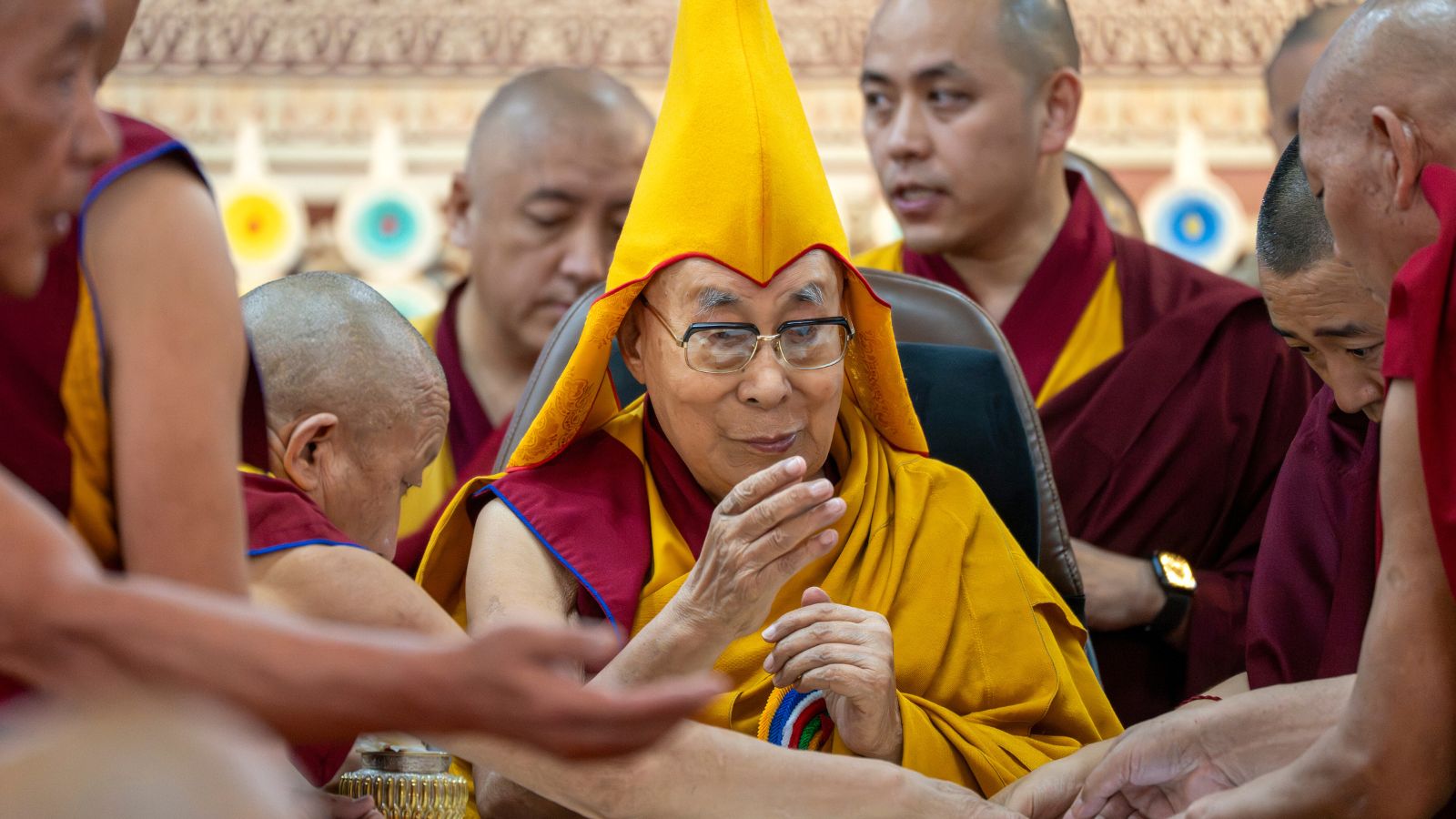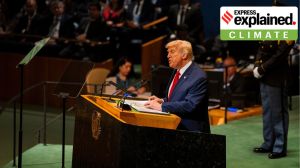Two days after the Dalai Lama said that the Gaden Phodrang Trust would have the “sole authority” to recognise his reincarnation and China rejected it, India on Friday crafted a two-pronged strategic response: while the government has maintained its decades-long position of viewing the Dalai Lama as a religious figure, it is sending Union Ministers Kiren Rijiju and Rajiv Ranjan Singh for the 90th birthday celebrations in McLeodganj.
This is a carefully calibrated response to the Dalai Lama’s announcement at a time when India is working towards normalising ties with China after a border standoff since 2020.

The MEA official spokesperson Randhir Jaiswal said Friday, “We have seen reports relating to the statement made by His Holiness the Dalai Lama about the continuation of the Dalai Lama institution. The Government of India does not take any position or speak on matters concerning beliefs and practices of faith and religion. Government has always upheld freedom of religion for all in India and will continue to do so.”
The Tibetan issue has been a sensitive issue between India and China since the early 1950s. And, after the India-China war in 1962, Delhi has been cautious about its public pronouncements on the issue of the Dalai Lama.
Since then, the Indian government’s position has been that he is a “revered religious leader and is deeply respected by the people of India. His Holiness is accorded all freedom to carry out his religious activities in India.”
India’s position has been viewed as nuanced, where Delhi hasn’t officially supported the political activism by the Tibetan community in India. This is an important element for Delhi being sensitive to Beijing’s concerns over the Dalai Lama’s activities in India.
Beijing, however, views him as a “separatist”, and it has called him a “splittist”, “traitor”, and an exile with “no right to represent the Tibetan people”, and prohibits any public show of devotion towards him.
Story continues below this ad
A day after China rejected the Dalai Lama’s succession plan and reiterated that any future heir must receive its seal of approval, Union Minority Affairs Minister Kiren Rijiju said Thursday, “Reincarnation has to be decided by the established conventions and the desire of the present Dalai Lama. Nobody else has the right to decide on the next Dalai Lama. It is the most important defining institution for all the Tibetans and those who follow the Nalanda tradition of Buddhism”.
Reacting to a question on Rijiju’s remarks Thursday, Chinese Foreign Ministry spokesperson Mao Ning said India should be clear of the anti-China separatist nature of the 14th Dalai Lama and honour its commitments on Xizang (Tibet) related issues. China refers to Tibet as Xizang.
“India should exercise caution in its words and actions, stop interfering in China’s internal affairs with Xizang related issues and avoid impact on the improvement and development of the China-India relationship,” Mao told a media briefing in Beijing.
Rijiju reiterated on Friday that all the devotees and followers of the Dalai Lama want that the Tibetan spiritual leader should himself decide on his successor.
Story continues below this ad
Rijiju, however, clarified that he was not making the remarks on behalf of the government and neither was he commenting on China’s statement.
“There is no need for me or the government to say anything. Who would be the next Dalai Lama, it will be decided by him,” Rijiju said.
Asked about China’s statement, he said, “I do not want to react to China’s statement. I speak as a devotee, I have faith in the Dalai Lama, those who follow the Dalai Lama wish that he decides his successor.”
Rijiju’s statement ties in with New Delhi’s position that the Dalai Lama is a religious leader.
Story continues below this ad
China had rejected the Nobel Peace laureate’s succession plan. Chinese Foreign Ministry spokesperson Mao Ning had said that the reincarnation “must be chosen by drawing lots from a golden urn, and approved by the central government (of China).”
She also said that while China upholds a policy of religious freedom, it also “implements regulations on religious affairs and methods for managing the reincarnation of Tibetan living Buddhas.”
China’s ambassador to India, Xu Feihong said on X, “As a unique succession method of Tibetan Buddhism, the practice of Living Buddha reincarnation has continued over 700 years. The conferral of titles and the granting of seals by the central authorities of imperial dynasties were crucial prerequisites for the grand Living Buddhas of various Buddhist sects to obtain legitimacy and related rights. The title and status of the Dalai Lama were conferred and granted by the central government of the Qing Dynasty. The 14th Dalai Lama was enthroned only after receiving the approval of the then central government in 1940.”

































